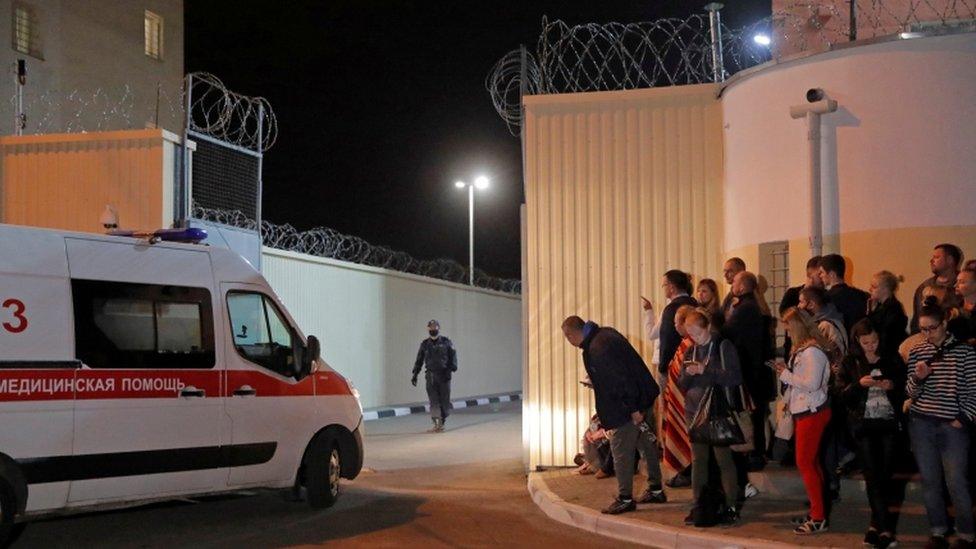Svetlana Tikhanovskaya: Belarus opposition leader hopeful after Boris Johnson meeting
- Published
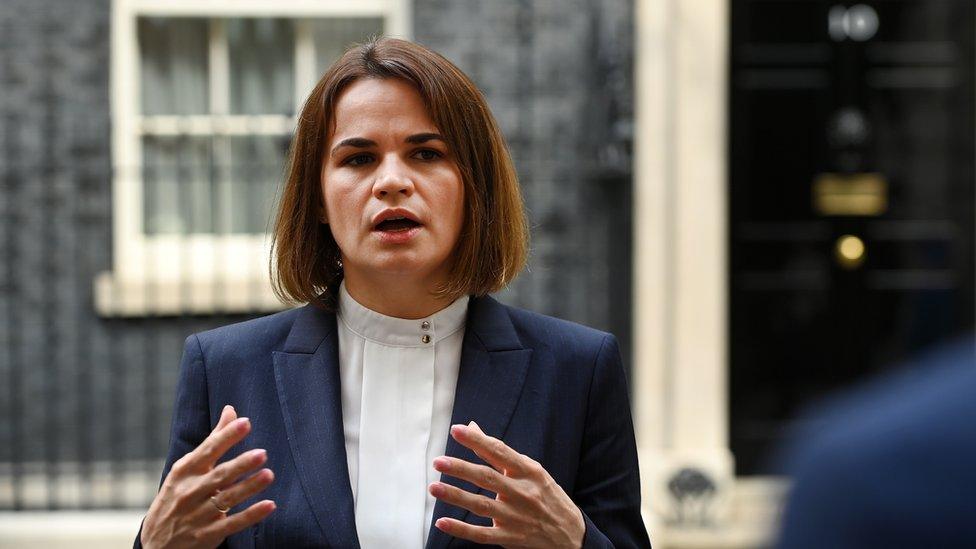
Svetlana Tikhanovskaya was forced to flee Belarus in the wake of disputed elections
The exiled Belarus opposition leader says she is sure the UK will offer further help to the country's people, amid a crackdown on dissent.
Svetlana Tikhanovskaya said Boris Johnson had assured her the UK would put pressure on the Belarus government, at a meeting in Downing Street.
It comes amid mass arrests following the disputed re-election of President Lukashenko in August 2020.
The prime minister said the UK was "very much" on Ms Tikhanovskaya's side.
The exiled opposition leader claimed victory in last year's Belarusian presidential election, after standing in place of her politician husband, who was detained in March 2020.
Forced to flee the country with her children on the day after the election, she now lives in Lithuania.
She told reporters outside Downing Street she had not discussed "concrete" actions the UK might take with Mr Johnson, adding that this would require "further work".
But asked if she thought such help would be offered by the UK, she replied: "I am sure."
She said she saw in Mr Johnson "a person who really shares common values with Belarusians".
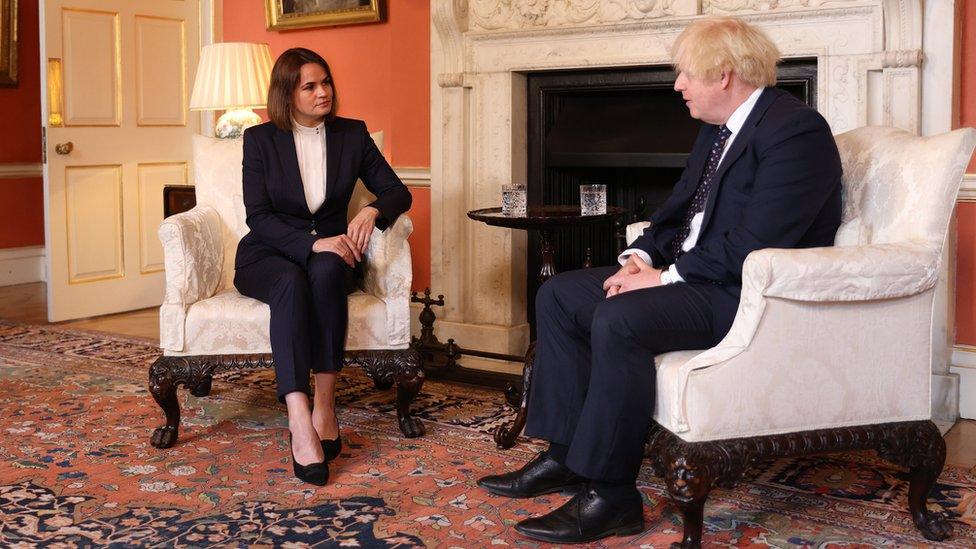
Ms Tikhanovskaya's visit to London is her latest stop in a diplomatic tour of Europe
It comes after Vitaly Shishov, the head of a group helping people who have fled Belarus, was found dead near his home in neighbouring Ukraine.
Police said they were investigating whether he had been killed and his death made to look like suicide.
Meanwhile, a Belarusian Olympic sprinter who feared for her safety has been granted a humanitarian visa by Poland.
Ms Tikhanovskaya said it was too early to comment on Mr Shishov's death.
But she said she was determined to carry on fighting the government of Alexander Lukashenko, who has ruled Belarus since 1994.
"I know that even if I disappear one day this movement will continue without me," she added.
She said the international community was "doing a lot" to help but that "sometimes decisions should be taken very, very fast".
"This regime will fall one day for sure," she said.
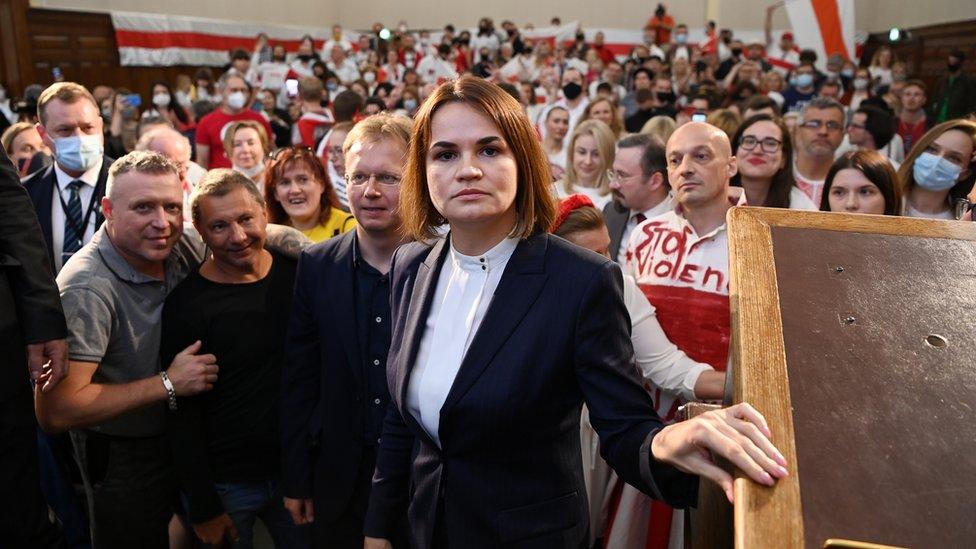
Ms Tikhanovskaya gave a speech to UK-based supporters after her meeting in No 10
Sanctions push
Before her meeting in London, she had said she would be pushing for the UK and Western allies to tighten sanctions on Belarus.
Speaking to the Financial Times, external, she said European sanctions contained "loopholes," and urged greater co-ordination with the United States.
The UK's sanctions - including travel bans and asset freezes on senior Belarusian officials - currently target a total of 99 people and nine organisations.
The list was widened in June following the detention of opposition Belarusian journalist Roman Protasevich and his girlfriend, after a Ryanair plane they were travelling in was forced to divert and land in Belarus.
At the same time, the EU updated its sanctions list to include a total of 166 persons and 15 entities.
Ms Tikhanovskaya said she had been assured by Mr Johnson that the UK would help create "multiple points of pressure" on Mr Lukashenko's government.
This would include assistance for Belarusian journalists forced to flee the country, and for democracy campaigners and charities, she added.
Welcoming Ms Tikhanovskaya to Downing Street, Mr Johnson said: "We are very much on your side, very much in support of what you are doing.
"We are committed to supporting human rights and civil society in Belarus."

Belarus: The basics
Where is Belarus? It has its ally Russia to the east and Ukraine to the south. To the north and west lie EU and Nato members Latvia, Lithuania and Poland.
Why does it matter? Like Ukraine, this nation of 9.5 million is caught in rivalry between the West and Russia. President Alexander Lukashenko has been nicknamed "Europe's last dictator" - he has been in power for 27 years.
What's going on there? There is a huge opposition movement demanding new, democratic leadership and economic reform. The opposition movement and Western governments say Mr Lukashenko rigged the 9 August election. Officially he won by a landslide. A huge police crackdown has curbed street protests and sent opposition leaders to prison or into exile.
- Published6 May 2021
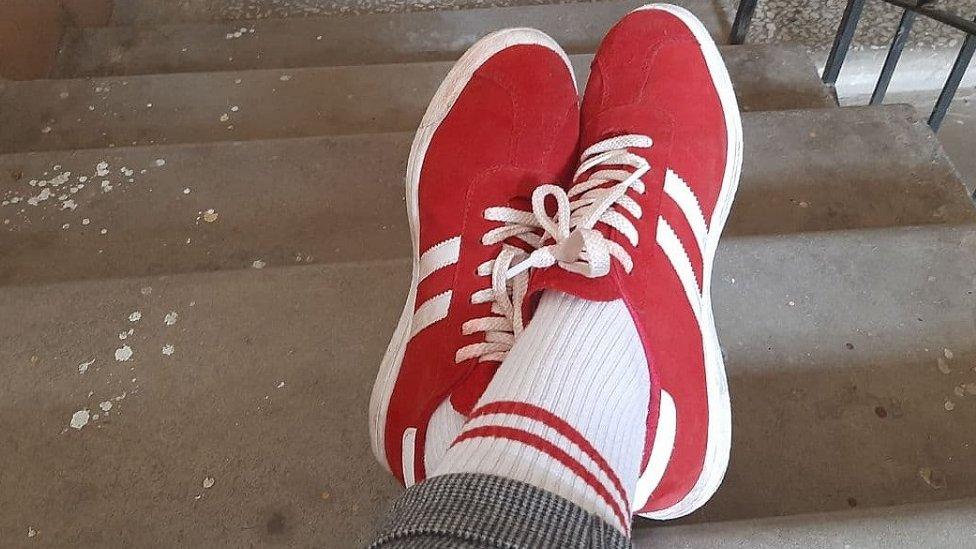
- Published27 May 2021
